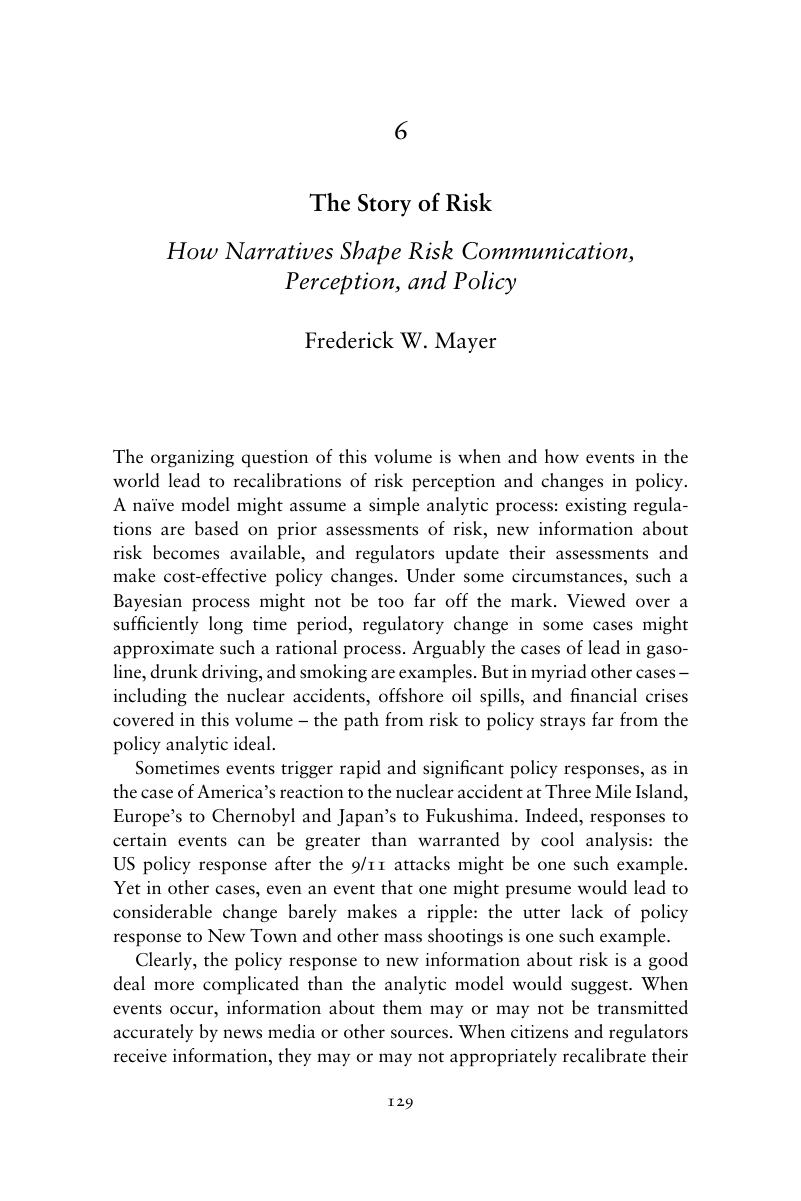 Policy Shock
Policy Shock Book contents
- Policy Shock
- Policy Shock
- Copyright page
- Contents
- Figures
- Tables
- Boxes
- Contributors
- Acknowledgments
- 1 Introduction
- Part I The Conceptual Terrain of Crises and Risk Perceptions
- 2 Economic Analysis, Risk Regulation, and the Dynamics of Policy Regret
- 3 Revised Risk Assessments and the Insurance Industry
- 4 Understanding Public Risk Perception and Responses to Changes in Perceived Risk
- 5 Focusing Events, Risk, and Regulation
- 6 The Story of Risk
- Part II Case Studies on Offshore Oil Spills
- Part III Case Studies on Nuclear Accidents
- Part IV Case Studies of Financial Crises
- Part V Conclusions
- Index
- References
6 - The Story of Risk
How Narratives Shape Risk Communication, Perception, and Policy
from Part I - The Conceptual Terrain of Crises and Risk Perceptions
Published online by Cambridge University Press: 24 October 2017
- Policy Shock
- Policy Shock
- Copyright page
- Contents
- Figures
- Tables
- Boxes
- Contributors
- Acknowledgments
- 1 Introduction
- Part I The Conceptual Terrain of Crises and Risk Perceptions
- 2 Economic Analysis, Risk Regulation, and the Dynamics of Policy Regret
- 3 Revised Risk Assessments and the Insurance Industry
- 4 Understanding Public Risk Perception and Responses to Changes in Perceived Risk
- 5 Focusing Events, Risk, and Regulation
- 6 The Story of Risk
- Part II Case Studies on Offshore Oil Spills
- Part III Case Studies on Nuclear Accidents
- Part IV Case Studies of Financial Crises
- Part V Conclusions
- Index
- References
Summary

- Type
- Chapter
- Information
- Policy ShockRecalibrating Risk and Regulation after Oil Spills, Nuclear Accidents and Financial Crises, pp. 107 - 128Publisher: Cambridge University PressPrint publication year: 2017
References
- 2
- Cited by


